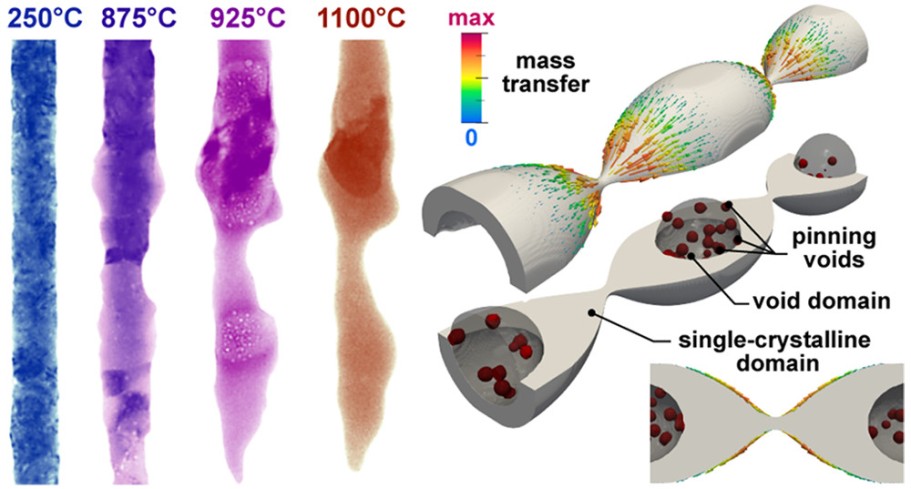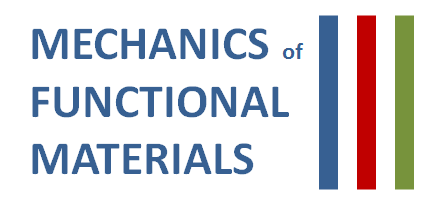In situ transmission electron microscopy analysis of thermally decaying polycrystalline platinum nanowires
New Publication in “ACS Nano”
2020/07/31

Authors: Torsten Walbert, Falk Muench, Yangyiwei Yang, Ulrike Kunz, Bai-Xiang Xu, Wolfgang Ensinger, and Leopoldo Molina-Luna
Owing to their large surface area, continuous conduction paths, high activity, and pronounced anisotropy, nanowires are pivotal for a wide range of applications, yet far from thermodynamic equilibrium. Their susceptibility toward degradation necessitates an in-depth understanding of the underlying failure mechanisms to ensure reliable performance under operating conditions. In this study, we present an in-depth analysis of the thermally triggered Plateau–Rayleigh-like morphological instabilities of electrodeposited, polycrystalline, 20–40 nm thin platinum nanowires using in situ transmission electron microscopy in a controlled temperature regime, ranging from 25 to 1100 °C. Nanowire disintegration is heavily governed by defects, while the initially present, frequent but small thickness variations do not play an important role and are overridden later during reshaping. Changes of the exterior wire morphology are preceded by shifts in the internal nanostructure, including grain boundary straightening, grain growth, and the formation of faceted voids. Surprisingly, the nanowires segregate into two domain types, one being single-crystalline and essentially void-free, while the other preserves void-pinned grain boundaries. While the single-crystalline domains exhibit fast Pt transport, the void-containing domains are unexpectedly stable, accumulate platinum by surface diffusion, and act as nuclei for the subsequent nanowire splitting. This study highlights the vital role of defects in Plateau–Rayleigh-like thermal transformations, whose evolution not only accompanies but guides the wire reshaping. Thus, defects represent strong parameters for controlling the nanowire decay and must be considered for devising accurate models and simulations.



